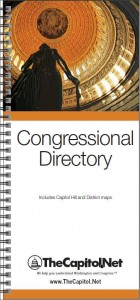 Congress receives more than 86.9 million pieces of snail mail annually, and more than 200 million emails each year. How effective are these communications? Joshua Tauberer, the creator of research tool GovTrack says that in his personal experience:
Congress receives more than 86.9 million pieces of snail mail annually, and more than 200 million emails each year. How effective are these communications? Joshua Tauberer, the creator of research tool GovTrack says that in his personal experience:
[…] what Congressional staff say is that two things happen with letters and other communications. First, Representatives and Senators use the information essentially like a poll: They tally up responses and use the totals to guide their decision making. Second, on rare occasions they use some letters as case studies in speeches on the floor, to support their point with a little personal touch. A letter turning into a case study is especially rare, especially in terms of the volume of communications received, which means by and large the actual personal content of messages (beyond what can be tallied) is pretty much unread. Moreover, your personal communication is worthless in isolation. As part of a movement, when the tally will add up to something, it might have an impact. I’m sure there are some representatives that take tallies seriously, but I don’t know how many. No House staffer says they actually read the letters carefully: They are frank that they don’t have the resources to do it.
Below is a list of tips for contacting Congress
- Each U.S. citizen has only three legislators in Congress: the two Senators who represent your state and whichever Representative is elected from your congressional district.
- Constituency matters. Include your mailing address, especially your zip code, to demonstrate you are a constituent of the Member of Congress to whom you are writing. Don’t waste your time writing to a Senator or Representative who is not one of your three legislators.
- Members of Congress have both limited time and limited staff. On average, each Representative has a staff of 15 and each Senator has 34 people on his or her team.
- On that note, be brief in whichever form of communication you decide to pursue. Aim to make each letter only one page in length.
- Address only one topic per letter or phone call. (Don’t write or call about every single bill, however.)
- Be courteous.
- Telephone calls are usually not answered personally by the member of Congress, but by a person on his or her staff. Ask to speak with the aide who handles the issue you are calling about.
- Be specific and reference the specific bill you support or oppose rather than a general issue. Mention bills by their number.
- Explicitly state something along the lines of, “I support/oppose (S.___/H.R.___),” and the reasons for your support or opposition.
- Write about a particular bill when it is about to be discussed in committee or on the floor.
- Whichever mode of communication you use to contact the office, ask for a written reply that includes your legislator’s position.
- GovTrack also says that, “Writing in a form letter provided to you by an advocacy group will probably have very little effect. Especially if it is a fax. Faxes are quickly discarded. Members’ staffs notice when they receive hundreds of the same letter, and they don’t count these letters as important as personalized messages.”
- Use the following formats to address your written correspondence and snail mail envelopes.
Letters to Senators:
Honorable [Full Name]
United States Senate
Washington, DC 20510
Dear Senator [Last Name]:
Letters to Representatives:
Honorable [Full Name]
House of Representatives
Washington, DC 20515
Dear [Mr. or Ms.] [Last Name]:
Some resources for contacting Congress are listed below:
- Our comprehensive Congressional Directory lists members of the U.S. Senate and House of Representatives, complete with color photos and a fold-out map of Capitol Hill. It’s even wire-spiral bound for flat-fold reference and durability.

- Find out who your U.S. Representative is at http://www.house.gov/writerep/.
- View a complete list of Representatives at http://www.house.gov/house/MemberWWW.html.
- Find out who your U.S. Senator is at http://www.senate.gov/senators/senator_by_state.cfm.
- View a complete list of Senators at http://www.senate.gov/senators/index.cfm.
- View a searchable directory of congressional telephone numbers at http://www.congress.org/congressorg/directory/congdir.tt.
- You can call the Capitol Switch Board at (202) 224-3121 and ask for your Congress member by name and state.
- USA.gov, the official web portal for the U.S. federal government, has compiled contact information including phone numbers plus email and postal addresses for key elected officials on their Contact Government page. In addition to info on Congress members, the list also includes data for state governors and legislators, as well as the President and Vice President.
You can also contact your Congressperson through Twitter using 2gov. The site has a feature called “Tweet A Message to Your Representatives,” which will do just that: identify your district’s Representative, send a public Twitter message directed at him or her, then send a professional report to his or her office that compiles all of the tweets. You can choose to send the message anonymously or to authenticate it with your full name and street address to prove you are a registered voter. (Your address isn’t publicly shared.)
Also see How to Contact Congress
For more than 40 years, TheCapitol.Net and its predecessor, Congressional Quarterly Executive Conferences, have been teaching professionals from government, military, business, and NGOs about the dynamics and operations of the legislative and executive branches and how to work with them.
Our custom on-site and online training, publications, and audio courses include congressional operations, legislative and budget process, communication and advocacy, media and public relations, testifying before Congress, research skills, legislative drafting, critical thinking and writing, and more.
TheCapitol.Net is on the GSA Schedule, MAS, for custom on-site and online training. GSA Contract GS02F0192X
TheCapitol.Net is now owned by the Sunwater Institute.
Teaching how Washington and Congress work ™

